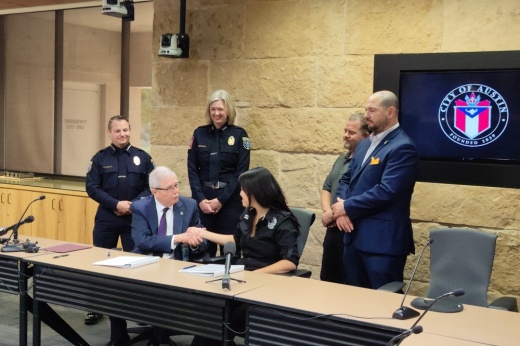The action taken
With council’s approval of the four-year agreement, EMS, or emergency medical services, personnel will see an increase of 4% or more to their base wages in fiscal year 2023-24—which begins Oct. 1—based on their position and tenure in the department, along with:
- A 4% increase in FY 2024-25
- A 3% increase in FY 2025-26
- A 3% increase in FY 2026-27
“We certainly have a long way to go, and I certainly want to see our paramedics ... reach parity with other public safety personnel,” Council Member Vanessa Fuentes said during the meeting. “I think that this contract goes a long way in getting us on the ground on that step.”
How we got here
AEMSA began wage negotiations with the city in 2021, citing a dire need for recruitment and retention incentives. Last August, the union reached a tentative agreement with the city to raise EMT starting pay to $22 per hour and paramedic pay to $30.03 per hour.
AEMSA president Selena Xie said that within the last year, Austin-Travis County EMS was between 20%-23% short staffed. Although the department should have a total of 665 personnel, as of June 30, there were 137 vacancies:
- 80 clinical specialist-field vacancies
- 38 medic-field vacancies
- 12 medic-communications vacancies
- 6 clinical specialist-communications vacancies
- 1 captain-field vacancy
“Some of the firefighters see that the ambulances are down and get upset about that because that means that they have to sit on the scene longer on some nonemergencies,” Xie said. “And, when we have fewer ambulances running more calls, that's obviously going to increase everybody's workload. ... What we’re currently figuring out within our union is, do we want to come in [to work] more while we’re waiting for our staffing, or do we want to work harder while we’re at work?”
Looking ahead
With the approval of the contract, Xie said the union can fully focus on how to best take care of the community—and themselves.
“Our medics are excited to do that work and think about what a progressive EMS system looks like,” Xie said. “I hope [the contract] gives our members some amount of stability in knowing that we will be in our contract for four years and they can plan their lives much better around that.”





